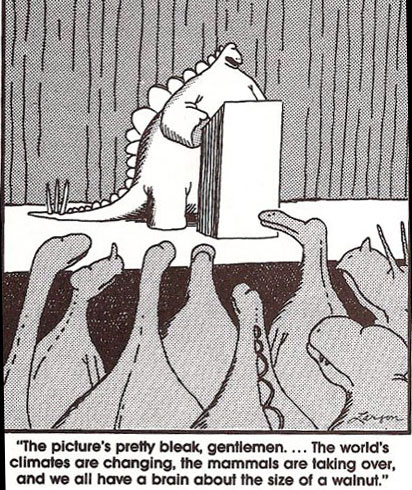I’ve been reading more Wendel Berry. His insights into how the rise of industrialism and “agribusiness” in America has served to undermine families, communities, father-son relations, churches, etc. are pretty well reasoned. I’m not on board with everything he’s saying, but there is a hefty amount of good stuff in there. And yet… what do you do about it all? It all seems so hopeless. One reviewer of “The Unsettling of America” on Amazon said that the book is “long on diagnosis, short on cure”. I couldn’t agree more. I also think that phrase pretty much sums up MANY books, especially books pertaining to religion and culture.
(Fill in the blank) is going to hell in a handbasket and here’s why. What follows is often a more or less accurate detailing of some of the reasons behind the decline in (marriage, literacy, tithing, savings, employment, churches, dental hygiene) or the appalling rise of (consumerism, debt, porn, deadbeat dads, the prosperity gospel, motorcycle accidents). If the author is a good writer, the ride can be witty and include interesting anecdotes and case studies. If the writer is a sufficiently deep thinker, perhaps they articulate some of the underlying philosophical or psychological things going on. If the writer is NOT so good, you’ll see the word “unfortunately” a lot usually followed by a paragraph of statistics.
Near the end of the book, often just in the last one or two chapters, they will try to shift gears and offer some kind of solution. It’s often a half-hearted attempt – just a desire I think to end on some kind of a positive note. They’ve spent the last two hundred pages explaining how difficult the problem is, now what the heck are they going to come up with that is going to fix it? Something concise that will really blow your mind? Probably not.

The result is a wholly depressing and unsatisfying read – like watching the news only with a lot more effort involved. Sure, the research may be sound, their conclusions agreeable, and the importance of the cultural phenomenon being discussed relevant and even quite serious. So what do you freakin’ do about it? And if you can’t come up with any kind of solution, why did you write a whole book on it in the first place? Long on diagnosis, short on cure.
I wrote this down in my notebook in a rather stream-of-consciousness fashion. I’m trying to break it up here into three parts. In part two I’ll take a closer look at the forms cures actually take and in part three I’ll put forth a Girardian theory as to what happens naturally when the cure is short, at least in some cases.
